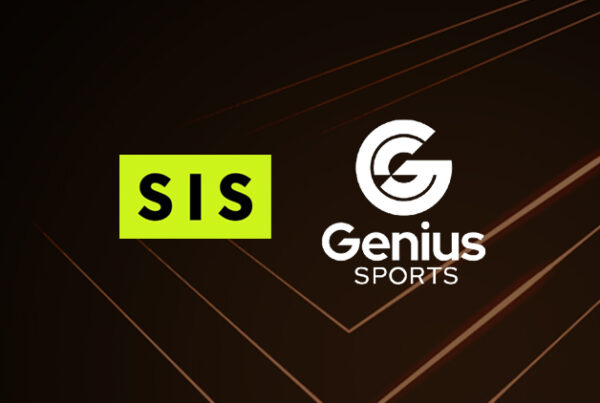Our Product Director, Conleth Byrne recently spoke to G3 to discuss the issues facing the wider adoption of esports betting within traditional betting platforms and the future of the esports betting space.
In what ways do esports fans consume content differently from fans of ‘traditional’ sports?
We originally designed our Competitive Gaming product to specifically appeal to existing sports bettors, within an easy-to-understand format and with frequent betting opportunities. Our Esoccer and Ebasketball products pit highly skilled esports players head-to-head in fast-paced action and have been well-received by operators who have incorporated the 24/7 round-the-clock events, built as an end-to-end solution, into their sportsbooks.
More recently, we also saw an opportunity to broaden our Competitive Gaming offering to attract a wider demographic through the addition of CS:GO. We have already seen that within conventional sportsbooks, a large number of bets are placed on tier-one esports tournaments featuring League of Legends, Dota 2 and CS:GO. With that in mind, the in-house development of a round-the-clock product for the latter discipline was a logical next step in the evolution of SIS Competitive Gaming.
How does this translate when it comes to betting patterns and behaviour?
SIS Competitive Gaming was developed to complement our existing, overarching 24/7 betting content strategy, which comprises the provision of continuous live betting opportunities to bettors wherever they are around the world, at whatever time of day they are choosing to bet. Our operator partners have seen very positive results when integrating our Competitive Gaming products as a result, as it provides bettors with regular chances to place bets outside of scheduled live sporting events. Just as it is within many live sports, in-play betting within esports titles is very popular and due to improvements in data provision, engagement levels are increasing.
What, if any, are the technical barriers that need to be overcome for esports betting to reach its potential?
In order to offer the widest range of esports betting opportunities, operators must be given access to reliable data. In some cases, this has proven difficult for below top-tier esports tournaments, where a lack of credible information about team members makes predicting outcomes very difficult. It can also lead to a frustrating experience for the end user when traders are forced to suspend markets while attempting to discern what is happening, particularly in more minor events.
While the hope is that such difficulties will eventually be ironed out, we recently partnered with esports betting solutions specialist Oddin.gg to provide odds and trading support to customers for CS:GO. As with all our Competitive Gaming products, our CS:GO offer is an ultra-competitive, high-integrity betting proposition and adheres to a robust integrity process which follow the Esports Integrity Commission’s (ESIC) best practice, ensuring each event is fair.
All our streams are produced in-house in our self-contained Competitive Gaming studios in Milton Keynes and Manchester offering, operators and their customers ultra-low latency. This provides a key point of difference over streams that are supplied to operators where games are played remotely. With these remote events, they often have a larger latency, meaning gamers cannot access the maps of opponents in real time.
What’s the optimal way of acquiring esports fans as bettors?
In short, offering enthusiasts the titles they enjoy. In researching how we could enhance SIS Competitive Gaming, it was clear that the biggest volume of betting turnover in the marketplace belonged to CS:GO. Bettors want to bet and engage with this content, so in order to help our operator partners with customer acquisition we decided to develop our own CS:GO product.
It is also key that esports fans are provided with an optimal betting experience on their favoured titles. Within our product, presenters introduce every game and in-game commentary provides real-time analysis of how the play is unfolding, along with on-screen form guides of the gamers and the latest betting odds to drive engagement. It is the only service on the market that has visible referees watching over every game, providing reassurance to bettors on integrity.
What innovations within the esports betting space have caught your attention?
The use of Artificial Intelligence (AI) in processing a variety of sources to calculate live betting markets has brought impressive results and a reduction in downtime, as we have seen from the example of our Competitive Gaming data partner Oddn.gg. For innovative products such as esports bet builders to gain traction, the market needs to evolve, and operators have to be in a position where they can fully trust every aspect of a stable product.
Does esports merit its own tab on the sportsbook?
It depends on the type of esports betting events that are on offer and the target audience. With Ebasketball and Esoccer, many sportsbooks are experiencing an increase of turnover by placing these markets within the main basketball and football sections. As our sports simulated titles are optimised for betting, they instantly resonate with existing sports bettors. Classic first-person shooter events such as CS:GO are best placed within an esports tab.
We can now offer operators over 150,000 quick-fire head-to-head live matches every year, with a minimum of four concurrent streams available at any one time to maximise engagement as bettors watch and bet on live broadcasts of head-to-head video game competitions between skilled gamers. It’s a compelling product and one that we believe will continue to grow in popularity and scope.
What is the future of CS:GO?
It is now a decade since CS:GO was first released and its popularity as an esports title shows no sign of diminishing, with highly lucrative tournaments taking place all over the world. Its fast-paced, exciting action is well-suited to betting and we believe that the surface has barely been scratched in this regard. Our creation of a 24/7, 365 days a year CS:GO product that suits the needs of our global partners within Competitive Gaming allows us to take the benefits of the engaging, quick gameplay and to bring it to operators the world over to put in front of their audience, where we believe it will resonate. SIS Competitive Gaming is a low-latency, high-integrity product that is produced in an easy-to-understand 2v2 format and is specifically built for betting and to generate superior profits for operators.
Where are the most lucrative esports markets and which hold the most potential?
As things stand, CS:GO sits on top as the most lucrative esports market from a betting perspective, followed by League of Legends and Dota 2. Valorant has grown in popularity, but the potential for every one of these titles is restricted by the reliability of data from non-tier-one competitions and the time zone tournaments take place in, relative to where the bettor is situated. This is a factor behind the growing popularity of our regular, round-the-clock Esoccer and Ebasketball products, as they are hugely appealing to existing football and basketball bettors, including those that favour in-play wagering. In terms of geography, we are seeing growth all over the world but clearly there is strong potential across North and Latin America as sports betting regulation continues to roll out.
What is the future for esports in Brazil as licences are handed out?
The expectation is that esports betting will prove to be very popular in the regulated betting market of Brazil. There is a strong player base in the vast country, where CS:GO in particular is a widely enjoyed game. I believe that esports will have a major role to play in shaping the legal sports betting market in Brazil once it opens up and this is a country where we foresee a big appetite around our Ebasketball and Esoccer products, given their popularity and familiarity with a massive audience.#
For more information on SIS Competitive Gaming, click here.





